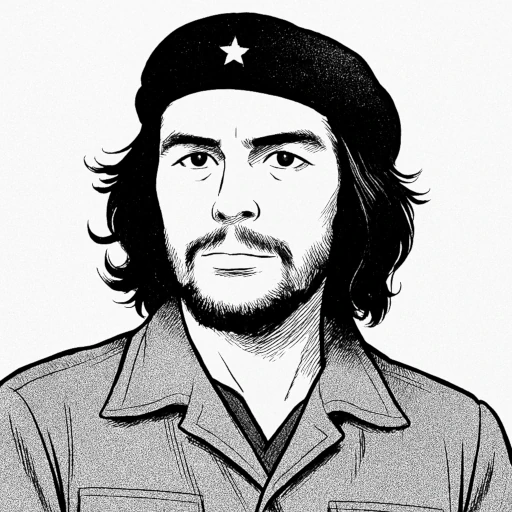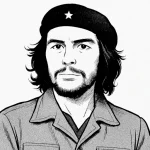“Whenever death may surprise us, let it be welcome if our battle cry has reached even one receptive ear and another hand reaches out to take up our arms.”

- June 14, 1928 – October 9, 1967
- Born in Argentina
- Revolutionary, doctor, writer, politician
table of contents
Quote
“Whenever death may surprise us, let it be welcome if our battle cry has reached even one receptive ear and another hand reaches out to take up our arms.”
Explanation
In this statement, Guevara expresses a deep commitment to the revolutionary cause, one that transcends personal survival or victory. The idea of welcoming death reflects his complete dedication to the struggle for justice and his belief that even if he were to fall in battle, his efforts would not be in vain as long as his message continued to inspire others. The imagery of a “battle cry” reaching “one receptive ear” suggests that revolutionary ideals are not about individual glory, but about seeding a collective consciousness that will live on through others who are willing to join the cause. Guevara sees his death not as an end but as a part of the ongoing revolutionary movement, where each fallen fighter is replaced by others who continue the struggle.
This sentiment aligns with Guevara’s life and his commitment to internationalist revolution. After playing a crucial role in the Cuban Revolution, Guevara went on to try and spark revolutions in Congo and Bolivia, believing that the fight for liberation should be global, not confined to one nation. His readiness to embrace death for the cause was not out of nihilism, but out of a profound belief in the inevitability of change. For Guevara, revolution was not merely about winning battles, but about creating a legacy of resistance and inspiring others to take up the fight.
In modern contexts, this quote resonates with individuals and movements that understand the sacrifice inherent in fighting for social justice or human rights. Whether it’s activists working for climate change, racial equality, or workers’ rights, the idea is that the movement must continue even after personal setbacks or even personal loss. Guevara’s words speak to the power of collective action, where each individual contribution, no matter how small, builds toward the greater goal of social transformation. The willingness to sacrifice for the cause—whether through life or death—reminds activists today that revolutionary change requires an unwavering commitment to a vision greater than oneself.
Would you like to share your impressions or related stories about this quote in the comments section?

